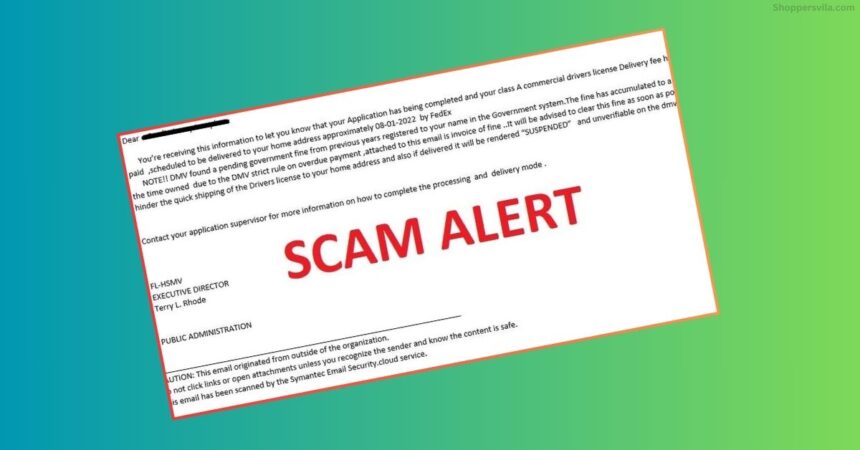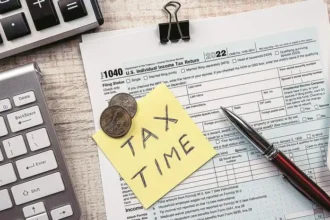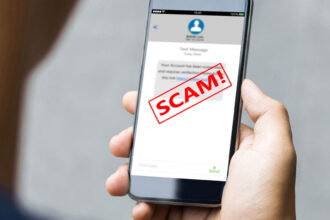Florida drivers are increasingly becoming targets of sophisticated scams impersonating the Florida Department of Highway Safety and Motor Vehicles (FLHSMV). These fraudulent communications claim unpaid tolls, license suspensions, or outstanding fines that require immediate payment. With these scams on the rise, Florida residents need to understand how to identify these threats and protect themselves from potential identity theft and financial fraud.
The Rising Tide of FLHSMV Impersonation Scams
The FLHSMV has issued multiple warnings about a growing number of scams targeting Florida drivers. Scammers are sending text messages, emails, and even making phone calls while posing as official FLHSMV representatives. These communications typically claim the recipient has unpaid tolls, suspended licenses, or outstanding fines that require immediate payment to avoid penalties, legal action, or further suspension.
According to the FLHSMV, these scams have become increasingly sophisticated, with fraudsters creating convincing replicas of official communications and websites. The department has emphasized that they will never request payment information or personal details through text messages or emails regarding license suspensions or unpaid fines.
The scams target vulnerable individuals who may become alarmed at the prospect of legal trouble or driving privileges being revoked. By creating a sense of urgency, scammers hope to override people’s natural caution, leading them to click on malicious links or provide sensitive information.
How These Scams Operate
These FLHSMV impersonation scams typically follow a calculated pattern designed to create panic and prompt immediate action:
- Initial Contact: The victim receives an unexpected text message, email, or phone call claiming to be from the FLHSMV.
- False Claims: The communication states there’s an urgent matter requiring attention – typically an unpaid toll, license suspension, or fine that must be addressed immediately.
- Pressure Tactics: A deadline is provided (often within days or even hours), with threats of additional penalties, legal consequences, or permanent suspension if not addressed promptly.
- Malicious Links: The message includes links to fraudulent websites designed to look like official FLHSMV payment portals.
- Data Collection: Once on these fake websites, victims are prompted to enter personal information including:
- Driver’s license details
- Social Security numbers
- Credit card information
- Bank account details
- Identity Theft: With this information, scammers can commit identity theft, make fraudulent charges, open new accounts, or sell the information to other criminals on the dark web.
In some sophisticated versions, scammers have created websites that closely mimic the actual FLHSMV portal. As one Reddit user noted, even the URL structure can sometimes appear legitimate at first glance, featuring terms like “mydmvportal” or “flhsmv” within the domain, though careful inspection reveals they’re not official government (.gov) domains.
Fake FLHSMV Email and Text Patterns: Real Examples
Understanding the typical patterns of these scam messages can help Floridians quickly identify and avoid falling victim to them. Here are examples of common fraudulent communications and their identifying characteristics:
Text Message Examples
FLHSMV Final Reminder: You have an outstanding toll. Your toll account balance is outstanding. If you fail to pay by March 13, 2025, you will face penalties or legal action. Now Payment: [Link] (Please reply Y, then exit the SMS and open it again to activate the link, or copy the link to your Safari browser and open it) Please settle your toll immediately after reading this message to avoid penalties for delaying the payment. Thank you for your cooperation.
Immediate Action Required – Florida Department of Highway Safety and Motor Vehicles Notification: Your vehicle has been photographed failing to pay required toll on FLHSMV. Balance Due: $12.45. Payment Deadline: 04/25/2025. Pay online to avoid additional penalties: [Link] or reply INFO for more details.
ALERT: Your FLHSMV account is scheduled for suspension due to unpaid tolls. Amount due: $8.74. To prevent suspension and additional fees, pay now: [Link]. Respond PAY to confirm receipt of this message.
Email Examples
Fraudulent emails often contain more elaborate designs, including:
- FLHSMV logos and official-looking headers
- Case or reference numbers to appear legitimate
- Detailed payment instructions
- Attachments claiming to be “invoices” or “violation notices” (which may contain malware)
- Signatures from fabricated “department officials” or “executive directors”
One scam email example reported by the FLHSMV claimed the recipient’s “Application has being completed and your class A commercial drivers license Delivery fee ha paid, scheduled to be delivered to your home address…” but then claimed a “pending government fine from previous years” needed payment to avoid suspension.
Red Flags: How to Identify These Scams
Florida drivers should be aware of these common red flags that indicate a communication is likely fraudulent:
1. Communication Method
- Text Messages: The FLHSMV has explicitly stated they will never text Floridians asking for driver’s license details or payment information.
- Emails Requesting Payment: The department does not email residents asking for payment related to license suspensions or unpaid fines.
2. Content Warning Signs
- Urgency and Threats: Immediate deadlines and threats of severe consequences.
- Grammar and Spelling Errors: Official communications undergo proofreading; scams often contain errors.
- Generic Greetings: “Dear Customer” or “Dear Driver” instead of your specific name.
- Unusual Payment Methods: Requests for payment via gift cards, wire transfers, cryptocurrency, or other non-standard methods.
3. Technical Red Flags
- Non-Government URLs: Official FLHSMV online services use .gov domains. Be suspicious of .com, .org, .net domains, especially those with unusual formatting like “flhsmv-payments.com” or “florida-dmv-tolls.org”.
- Suspicious Links: Hover over (don’t click) links to see where they actually lead.
- Unusual Instructions: Legitimate organizations don’t ask you to “reply Y, then exit and open again” or use other strange procedures to access links.
4. Request for Excessive Information
- Requesting information the department would already have if the communication were legitimate.
- Asking for Social Security numbers or complete credit card details via unsecure methods.
Protecting Yourself: Preventative Measures
Florida residents can take several steps to protect themselves from FLHSMV impersonation scams:
Verify Communications Directly
If you receive a suspicious communication claiming to be from the FLHSMV:
- Do not click any links or respond to the message
- Contact the FLHSMV directly through their official channels:
- Official Website: https://www.flhsmv.gov
- Official Phone Number: 850-617-2000
- Visit a local FLHSMV office or tax collector in person if you’re still concerned
Monitor Your Accounts
- Regularly check your driver license status through the official MyDMVPortal (https://mydmvportal.flhsmv.gov)
- Review your credit report annually for signs of identity theft
- Set up alerts on your financial accounts to notify you of unusual activity
Strengthen Your Digital Security
- Use strong, unique passwords for government portal accounts
- Enable two-factor authentication when available
- Keep your devices and antivirus software updated
- Be cautious about the information you share on social media
Report Suspicious Activity
If you receive a suspicious communication or believe you’ve been targeted by a scam:
- Report it to the FLHSMV Fraud Section at [email protected]
- File a report with the Federal Trade Commission at https://reportfraud.ftc.gov
- Alert your local law enforcement agency, especially if you’ve shared personal information
What to Do If You’ve Fallen Victim
If you believe you’ve fallen victim to an FLHSMV impersonation scam, take these immediate steps:
- Change your passwords for any accounts that may be compromised
- Contact your financial institutions to flag your accounts for suspicious activity
- Place a fraud alert on your credit reports with the three major credit bureaus
- File a police report with your local law enforcement agency
- Request a “Verify ID Flag” on your Florida driver record by contacting: Bureau of Motorist Services Support
Driver License Fraud Unit, Mail Stop 84
2900 Apalachee Parkway
Tallahassee, Florida 32399
The “Verify ID Flag” will require additional identification verification for anyone attempting to use your license information, helping prevent further fraud.
Frequently Asked Questions
1. Are any FLHSMV text messages or emails about unpaid tolls or Driving License suspension legitimate?
No. The FLHSMV has explicitly stated they will never text or email Floridians asking for payment related to tolls, license suspensions, or unpaid fines. All such communications should be considered suspicious.
2. How can I check if I actually have unpaid tolls or license issues?
You can verify your driver license status and any potential issues through the official FLHSMV website (https://www.flhsmv.gov) or by calling their official number (850-617-2000). For toll-specific inquiries, contact Florida’s Turnpike Enterprise or your regional toll authority directly.
3. What’s the difference between FLHSMV communications and those from toll authorities?
The FLHSMV handles driver licensing and vehicle registrations, while separate toll authorities like SunPass or E-PASS manage toll collections. While the FLHSMV doesn’t send payment requests via text or email, some toll authorities may send electronic notifications. Always verify these directly with the toll authority through their official website or phone number.
4. I clicked a link in a suspicious message. What should I do now?
If you clicked a link but didn’t enter any information, run an antivirus scan on your device immediately. If you entered personal or financial information, contact your financial institutions, place a fraud alert on your credit reports, and consider freezing your credit to prevent unauthorized accounts from being opened.
5. How can I tell if a website is the official FLHSMV website?
Official FLHSMV websites always use a .gov domain (like flhsmv.gov) and are secured with HTTPS. The legitimate MyDMV Portal (mydmvportal.flhsmv.gov) is an exception that uses a subdomain of flhsmv.gov. Be wary of any website with “flhsmv” in the URL that doesn’t end in .gov, as these are likely fraudulent.
Conclusion: Stay Vigilant
As scammers continue to develop more sophisticated tactics, Florida drivers must remain vigilant about communications claiming to be from the FLHSMV. Remember:
- The FLHSMV will never text or email you requesting payment for tolls, license suspensions, or fines
- Always verify communications through official channels
- Report suspicious activities to help protect others from falling victim
By staying informed and cautious, Florida residents can protect themselves from these increasingly common scams. If something seems suspicious or “too good to be true,” it probably is. When in doubt, contact the FLHSMV directly through their official channels to verify any communications you receive.
The real FLHSMV is committed to protecting Floridians from fraud and has resources available to assist those who believe they may be victims of identity theft or fraud. By working together, Florida’s drivers and the department can help combat these deceptive practices and ensure the security of personal and financial information.
































